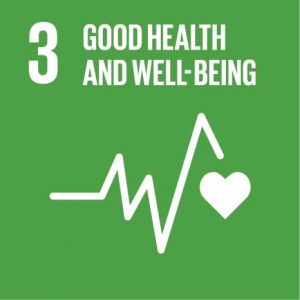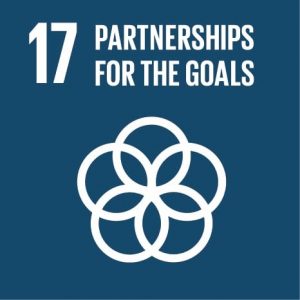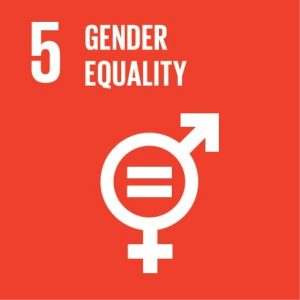Date : December 1, 2024



Amrita Vishwa Vidyapeetham demonstrates a comprehensive commitment to delivering health and well-being outreach programmes in local communities, aligned with Sustainable Development Goal 3 (Good Health and Well-Being), SDG 5 (Gender Equality), and SDG 17 (Partnerships for the Goals). Through its multifaceted approach, Amrita engages students, faculty, and healthcare professionals in volunteer-led initiatives addressing critical health and wellness topics including hygiene promotion, nutrition education, family planning awareness, sports and exercise programs, and aging well initiatives. The institution’s outreach encompasses the Amrita Village Health Champions Training Program, which equips community leaders with knowledge and skills for health advocacy; student volunteering programs coordinated through the Amrita College of Nursing and School of Medicine; health awareness workshops conducted in schools and communities; and nutrition-focused interventions delivered through the Department of Clinical Nutrition. These programs extend beyond urban settings to reach remote tribal communities and underserved villages, ensuring equitable access to health information and preventive care. By integrating academic learning with community service, Amrita transforms its students into health ambassadors while directly improving population health outcomes, reducing health disparities, and fostering sustainable well-being across the communities it serves. This approach exemplifies how institutional excellence can be channeled toward grassroots health promotion, contributing to India’s broader health equity and development objectives as outlined in the Sustainable Development Goals.
The journey of Amrita’s health outreach begins in the heartland of India’s tribal and remote regions. In June 2024, the Ayurveda team embarked on a mission to Serchhip, Mizoram, where they organized a lifestyle survey and free medical camp that touched the lives of 150 participants. With 66 individuals participating in comprehensive lifestyle assessments and 84 receiving health checkups, the team distributed 475 free medicines—a tangible expression of care reaching into communities where healthcare access remains a distant dream.
In the lush hills of Wayanad that same June, a different story unfolded with equal significance. Amrita Hospital, Kochi, in partnership with Swami Vivekananda Medical Hospital, reached over 200 tribal patients with specialized medical expertise. Neurologists provided epilepsy care, stroke specialists offered critical interventions, and pediatric surgeons brought hope to children with surgical needs. These weren’t merely clinical interventions; they represented bridges built between modern medicine and traditional communities, respecting cultural contexts while delivering world-class healthcare.
Read MoreThe Amrita School of Ayurveda emerged as a beacon of holistic health throughout 2024, organizing multiple camps across Kerala. In September, they conducted a general health camp at Balamritham School for 138 young students. Months later, in December, their medical camp at Sakthikulangara reached 135 individuals. A poignant geriatric camp in October 2024 brought together 60 elderly participants, addressing the often-neglected health concerns of aging populations. In March, women’s healthcare took center stage at Cheriyazheekal library hall, where 138 women received comprehensive health assessments. Each camp represented a commitment to health equity across age groups and demographics.
Read MoreBeyond treating illness, Amrita recognized that prevention through education holds transformative power. The “Knowledge to Action” initiative rippled across Amrita Serve villages in Uttarakhand, Himachal Pradesh, Haryana, and Punjab throughout 2024. Health education sessions reached communities with messages on nutrition, malnutrition prevention, malaria control, and tobacco awareness—empowering villagers with knowledge to safeguard their own health and that of their families.
At Amrita Vidyalayam, Kodungallur, the College of Nursing orchestrated a health awareness workshop that resonated with over 100 school students. The “Know, Resist Drugs” campaign transformed a typical school day into a health advocacy event, equipping the next generation with critical life skills. These workshops demonstrate Amrita’s belief that health literacy, especially among young people, creates ripples of positive change extending far beyond classroom walls.
Read MoreThe most transformative initiative for disadvantaged populations emerged through the Amrita Village Health Champions Training Program—a 10-day certification course that fundamentally shifted the narrative of community health. Beginning in September 2023 and continuing its impact through 2024, this program trained 36 villagers from 18 villages spanning 15 states across India. These community leaders returned to their villages not as external health workers, but as trusted neighbors equipped with knowledge of basic healthcare, disease prevention, nutrition, maternal health, and child health. They became the bridge between medical institutions and communities, translating clinical wisdom into local languages and culturally appropriate interventions.
The reach of Amrita SeRVe extends across 101 villages, where the commitment to health goes beyond episodic camps. Regular medical clinics operate in villages with difficult healthcare access, providing continuity of care that transforms health outcomes. Health workers trained at Amrita’s Institute of Medical Sciences bring professional expertise back to their communities. The initiative tackled malnutrition head-on by providing vegetable seeds and home cultivation education, ensuring that health interventions address root causes rather than merely treating symptoms. Water filters installed in these villages supplied clean drinking water—a simple yet profound intervention addressing the intersection of health, dignity, and basic human rights.
Read MoreThroughout 2024, Amrita’s students became active architects of community wellness for disadvantaged populations. The NSS Mental Health Initiatives demonstrated this commitment vividly. On February 22, 2024, students organized the Mental Health Marathon “Empower Your Every Step: Reset and Refresh,” creating a physical and emotional space where community members—particularly those from disadvantaged backgrounds—could confront stigma surrounding mental health. A week earlier, the workshop “Happiness is a Choice” had sown seeds of hope and resilience.
Through ALIVE, Sahaya, and NSS programs, student volunteers engaged in profound service targeting vulnerable populations. They visited old-age homes, bringing companionship to elderly individuals often abandoned by society; spent time at orphanages, providing care and attention to children without family support; worked with homes for mentally-challenged people, offering dignity and inclusion to those marginalized by disability; organized blood donation camps, literally saving lives while providing free health screening to disadvantaged communities; and conducted awareness campaigns that transformed neighborhoods into learning communities. These weren’t mandatory service hours but expressions of genuine compassion—students learning the art of service that transforms both giver and receiver.
Read MoreUnderlying this entire ecosystem of outreach was Amrita Sanjeevani, a long-running community outreach organization that had established itself as a steady presence in vulnerable communities. Over years and decades, it had rehabilitated tsunami survivors, organized life-saving blood donation camps, provided financial aid to widows and underprivileged children, and distributed clothing to tribal people. This organization embodied institutional memory—the understanding that sustainable community development requires not sporadic interventions but committed, long-term presence and partnership.
In Wayanad’s tribal communities—understood as refugee-like populations facing displacement from their traditional lands and livelihoods—Amrita’s health services took on additional dimensions. Beyond medical care, the team addressed cultural barriers and traditional belief systems, working respectfully within existing worldviews while introducing evidence-based health practices. This culturally sensitive approach recognized that healthcare effectiveness depends not just on clinical accuracy but on acceptance and trust within communities.
The partnership between Amrita Hospital, Kochi, and Swami Vivekananda Medical Hospital in Muttil, Wayanad, created a lifeline for over 200 tribal patients in remote areas during 2024. The specialized services—from epilepsy management to stroke medicine to pediatric surgery—addressed critical healthcare gaps that these marginalized communities had endured for years. Neurologists provided epilepsy care not as external experts imposing treatment, but as partners respecting the community’s agency and dignity. Stroke specialists offered critical interventions recognizing the urgency of life-threatening conditions. Pediatric surgeons brought hope to children with surgical needs, understanding that access to advanced care shouldn’t be limited to economically privileged populations.
The institution’s vision extended even beyond Indian borders. From April 28 to May 3, 2024, Amrita’s educational outreach programs traversed Kenya, Uganda, and Tanzania, engaging with immigrant and refugee communities, government officials, and educational institutions. This global health consciousness demonstrated that commitment to health equity knows no geographical boundaries—that communities across continents face similar challenges and deserve similar compassionate responses. In East Africa’s refugee settlements and immigrant communities, Amrita’s presence conveyed a message: your health matters, your well-being is valued, your humanity is recognized.
In a remarkable fusion of technology and community service, Amrita deployed the Haksh-E AI social robot for health education specifically designed to engage marginalized and immigrant community children. During November 18-21, 2024, at SVHSS Clappana School—a setting serving economically disadvantaged and refugee/immigrant students—this intelligent robot engaged 500 students, 100 parents, and 50 teachers in teaching hand hygiene and infection prevention. What could have been merely novelty became a powerful tool—a technologically advanced teacher that captured attention and conveyed essential health messages in an engaging format that resonated with modern learners, particularly those who might otherwise be excluded from technology access.
As 2024 progressed into 2025, Amrita’s commitment to specialized health outreach for marginalized populations intensified. Free health awareness classes for senior citizens addressed the distinctive health needs of aging populations within refugee and immigrant communities, covering healthy aging, dementia prevention, mental health, and physiotherapy. MathruSparsham, the free paediatric cardiology mega camp, offered free heart surgeries for children with congenital heart defects—a life-changing intervention that transformed medical possibilities for families in tribal and immigrant communities who otherwise could not afford such specialized care.
Throughout this period, multiple free medical camps for lung diseases, epilepsy, and general medical care were scheduled across Wayanad, ensuring that underserved regions received not just episodic care but consistent, reliable health services. This sustained presence in tribal territories represented a departure from charity models toward genuine partnership and solidarity with marginalized communities.
What emerges from this narrative is not merely a catalogue of programs but a living philosophy embedded in Amrita’s institutional DNA. The organization understood that health transcends the absence of disease—it encompasses nutrition, sanitation, mental well-being, education, dignity, and access to opportunity. By engaging its students, faculty, and resources in grassroots health promotion across local communities, disadvantaged populations, and refugee/immigrant communities, Amrita transformed an academic institution into a catalytic force for community transformation. Each medical camp, each student volunteer, each health champion trained, and each community reached represented an investment not just in immediate health outcomes but in building the foundational infrastructure for sustainable, equitable health systems. Through these multifaceted outreach initiatives spanning all three dimensions of vulnerable populations, Amrita exemplified how institutional excellence, when channeled toward community service, becomes a powerful instrument for social justice and human flourishing.